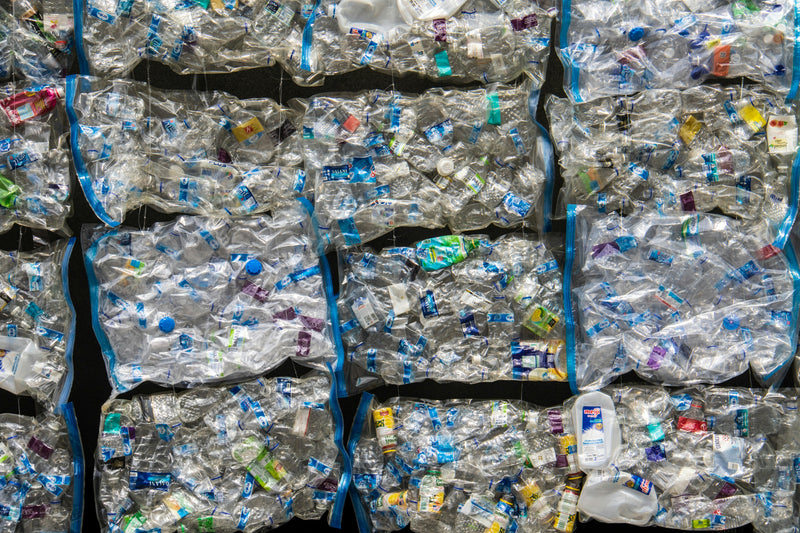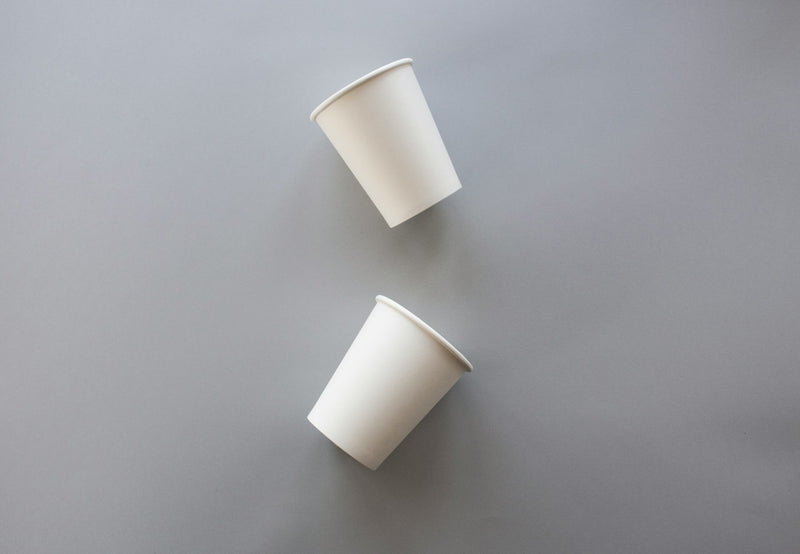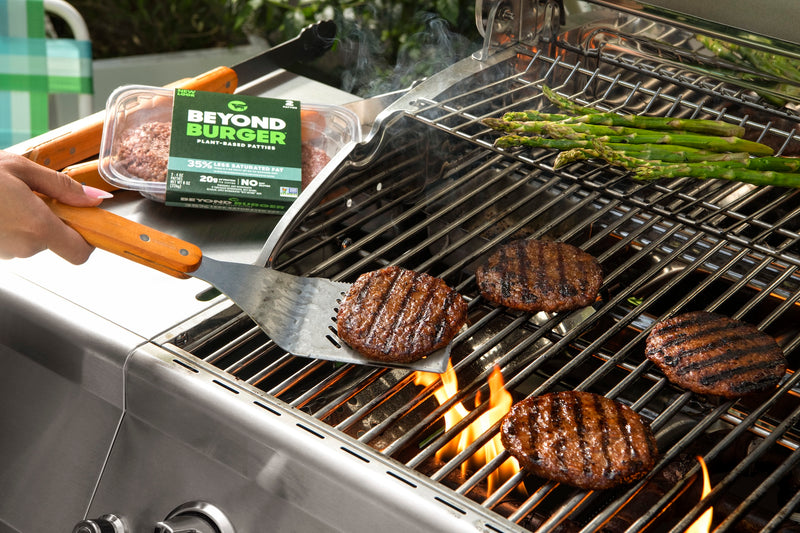We’ll be blunt. We really dislike plastic.
Why?
Because it isn’t biodegradable and accumulates in oceans and landfills. The production and disposal of plastic releases harmful pollutants that poison our water and air. Microplastics permeate ecosystems around the world, posing threats to wildlife and entering our food chain via water, plants, and air.
And, if that’s not enough, another reason we’re not fans of plastic is because we’ve been lied to for decades about its ability to be recycled.
Let’s discuss.
What’s going on
Only about 5% of plastic is actually reused to make new plastic products, according to a report from NPR and Greenpeace. That means most plastic is piled in landfills, incinerated, or scattered in our natural environment.
“But what about that reassuring triangle of arrows on my jug of detergent? Doesn’t that mean it’ll be recycled?”
Unfortunately, the ubiquity of that symbol is the work of Big Oil and its plastics’ lobbying arm, the American Chemistry Council, according to NPR. (Check out this Planet Money podcast from NPR if you’re interested in the history of how Big Oil intentionally misled the public into believing plastic would actually be recycled.)
Basically, the recycling symbol is slapped onto most plastics to alleviate the guilt we feel when buying them. It doesn’t mean the product that bears the symbol will actually be recycled — in fact, it probably won’t be.
The Environmental Protection Agency recently asked the Federal Trade Commission to stop the use of that symbol on many plastic products because they cannot be recycled.
The (terrible) economics of plastic recycling
So why aren’t plastics recycled at a higher rate?
The simple answer is money.
First, plastic collection itself is extremely difficult. Plastic products are frequently small and break into even smaller pieces, making them tough to find, collect, and sort.
Secondly, mixed plastics cannot be recycled together. That might seem trivial but it effectively renders plastic recycling a moot concept. There are thousands of different types of plastics, each with its own composition, characteristics, melting points, dyes, and colorants. That makes sorting extremely difficult.
Lastly, it doesn’t make financial sense for businesses. “It has always been exorbitantly expensive to collect, sort, truck, and safely reprocess plastic waste,” Greenpeace reports. On top of it being expensive to recycle, it’s main competitor — new plastic — is much cheaper and of higher quality.
Human and environmental impact of plastic recycling
Even if we could feasibly collect and sort plastic, we shouldn’t recycle it.
That’s because the process releases huge quantities of pollutants and is toxic for humans.
Microplastics are generated in mechanical recycling and are eventually removed by washing operations. At that point, microplastics are discharged to the environment via either untreated wastewater or wastewater treatment plant sludge streams, according to Greenpeace. As we’ve discussed before, microplastics are extremely common in our food system, including beer, wine, rice, fruits, vegetables and water.
Residents who live near plastic recycling facilities are more likely to be exposed to dangerous air pollution, per a study published by the National Institutes of Health. Plastic recycling has also been shown to be toxic to workers, according to a review by Leeds University in the United Kingdom.
It also turns out that recycled plastic is more likely to contain toxic chemicals as a result of the recycling process. A new report from Greenpeace provides peer-reviewed research and international studies “concluding that recycling actually increases the toxicity of plastics.”
What should we do?
Well, humanity needs to use way less plastic and to stop creating so much of it. Greenpeace has a great 7-point plan on how to tackle this at a global scale.
For consumers, here are a few tips:
- Always carry re-useable bags
- Buy and use a reusable water bottle
- Choose glass or metal containers for food
- Stop using plastic straws and single-use cutlery
- Shop in bulk to reduce individual plastic packaging
- Use bio-degradable and eco-friendly cleaning products



